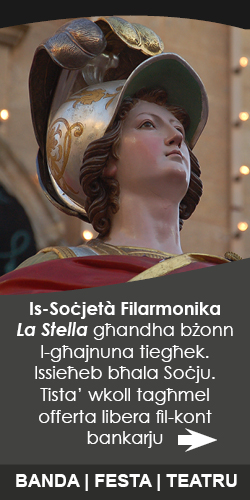VERDI’S FIRST MASTERPIECE
Review by Cecilia Xuereb [timesofmalta.com – November 4, 2007]
Macbeth was the first opera that Giuseppe Verdi wrote on a play by his beloved Shakespeare. With it the composer ceased to be a purveyor of popular entertainment as Rossini and Donizetti had been forced to be, and began to be a serious artist. He discarded the old formula and gave the music freedom to respond directly and immediately to the requirements of the drama.
Yet, although Verdi felt strongly committed to his opera, his work falls short of the greatness of the original which lies in the beauty of its poetry, in its psychological insight as we watch the contrary motion of the development of the “soaring ambition”, the wickedness inside Macbeth and his wife and the contrasting feelings inside them.
Verdi himself must have been unsatisfied with his opera and when, 18 years after its premiere in 1847, he was asked to add ballet music for a revival of the opera in Paris, he agreed, but he also stated that he wanted to make substantial changes to some numbers.
Even with these modifications, which gave it greater dramatic drive, I do not think the opera equals the greatness of the play. Yet ‘Macbeth’ remains the earliest of Verdi’s masterpieces, a work in which he made a huge advance towards dramatic truth, without sacrificing any part of his unique melodic gifts.
Dramatically, Verdi was not concerned with the killing of a kindly old king but with an exploration of the psyches of Macbeth and Lady Macbeth, to whom he refers throughout as simply “Lady”, and Mario Corradi’s note in the programme for the production of the opera at the Astra Theatre in Gozo last week, makes this point very clearly.
In fact realism was certainly not uppermost in the mind of the designer. The action unfolded on a stark timeless uniset resembling an amphitheatre – a circular set that represented a ‘mental’ space meant to entrap. With minimal changes and aided by excellent lighting design, this set adequately represented the heath or any other open space, a banqueting hall, a reception hall as well as an English scene. The sickly green light that surrounded the witches, the earthy colours of the costumes, the generally unrelenting penumbral lighting, certainly conveyed most successfully what the artistic director had in mind.
There were several telling touches in a production that clearly brought over the spirit of the opera, dark, passionate and elemental. This production succeeded in being unconventional and innovative at the same time, without breaking away completely from the traditional.
Joseph Vella conducting the National Orchestra showed the benefits of his experience and understanding of Verdi’s style in an interpretation that met, undaunted, the musical demands of the work. All the tempi worked effectively both for the music and for the individual singers, the latter only finding some difficulty in the banquet scene where at one point they could not fully keep up with the orchestra. Otherwise the orchestra kept a precise tempo and was only in danger of covering the singers in the last act. This might not have been a great orchestral performance but the spirit of the opera came over clearly from the pit as well as from the stage.
‘Macbeth’ has no tenor lead but needs a first-class baritone and soprano. Marco Chingari made a commanding Macbeth with his towering physique and total immersion in the character. His emotional tortured portrayal added depth and breadth to his voice that broke only at one point – in Act 1 following the murder of Duncan.
This murderous, usurping tyrant was neither flamboyant nor charismatic, but entirely fittingly nor charismatic, but entirely fittingly a very ordinary figure almost indecisive faltering and entirely driven by the woman at his side. He was thus particularly thrilling and his baritone voice was both appropriate and mellifluous, beautifully clear, supple and always plausible.
Lady Macbeth is a particularly difficult role demanding both vocal and artistic maturity. The score is full of passages marked sotto voce, plus a lot of hissing, whispering sort of sounds. She needs considerable vocal versatility because each of her arias demands a different expression moving from the aspirations to the throne of a young, ambitions of the woman who becomes quite unstoppable, coaxing and goading her more reluctant husband to be hold, to dare, in the realization that more murders need to be committed in order to keep the crown.
She is hypocritical in the banquet scene, acting the gracious hostess so as to cover up for her husband’s weakness. The contrast between her state of mind when awake and when asleep is sharp: awake, she still appears to be the stronger of the two, but in reality, her mind is already sick and, in her sleepwalking scene, she is an old sick woman who has crumbled under the weight of guilt.
Francesca Patanè possesses the kind of voice Verdi envisaged for the role – harsh; suffocated; and veiled with a diabolical sound. Patanè not only had those qualities but also all the notes which flowed with power and determination. Her piercing sounds accurately expressed Lady Macbeth’s ruthless drive for power. Her brindisi sparkled malignantly, her sleepwalking scene deployed a range of pallid coloratura and her calling up of the infernal spirits was valiant. Only an occasional lack of clarity in her diction marred a vivid account. Her “La Luce langue” was riveting, almost purring at first yet soon a snarling, villainous and burning force which more than anything showed that her husband had no hope.
Franco de Grandis was a dependable Banquo with a firm grasp of his role and a keen attention to the text. Tenor Joseph Calleja as Macduff was in firm control of his voice and his interpretative understanding demonstrated a thoughtful artist. He gave a poignant rendering of his aria “A la paterna mano” that was a finely phrased and rose to an exciting climax. His nuanced delivery enriched a portrayal that benefited from striking looks and of all singers his articulation was without doubt the best. As Malcolm, Anthony Aquilina needed firmer control of his voice, his pitch tended to wander and certainly needed the support it often got from Macduff.
The minor roles were executed with aplomb. The chorus of witches was dramatic and effective, both in the opening scene when they were bathed in green light, and in the later scene when the three sections were in turn bathed in reddish light. Whether as witches, courtiers, messengers, soldiers, townfolk the chorus was well in the picture and mostly very good and the director did a good job in getting so many performers on and off the stage without mishap.
THIS WAS AN EXCELLENT PRODUCTION. It was accompanied by a programme that with its fine essays makes yet another valid contribution that has been building up over the years.
photos: Joe Attard



